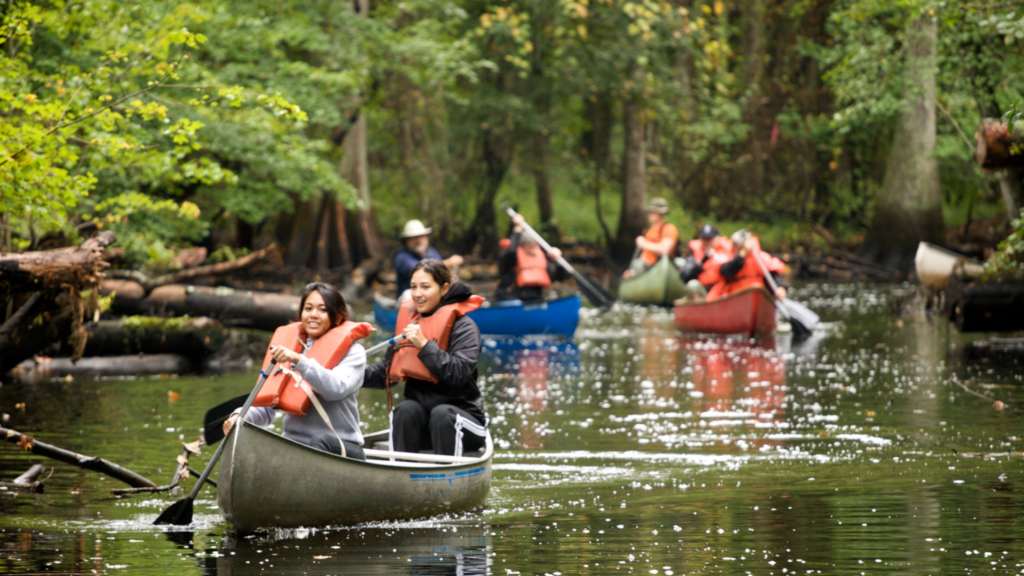 As a director for our parish’s adult catechumenate ministry I field a lot of phone calls and e-mails from seekers wanting to know about the various programs and processes our parish has to offer. I do my best to be welcoming and attentive in answering their questions in the hopes that I can schedule a face-to-face meeting. It is an unfortunate reality of our computer age, however, that much of our communication is no longer performed face-to-face. In fact, younger generations often avoid phone calls altogether, communicating instead through text messages, e-mail, and social media.
As a director for our parish’s adult catechumenate ministry I field a lot of phone calls and e-mails from seekers wanting to know about the various programs and processes our parish has to offer. I do my best to be welcoming and attentive in answering their questions in the hopes that I can schedule a face-to-face meeting. It is an unfortunate reality of our computer age, however, that much of our communication is no longer performed face-to-face. In fact, younger generations often avoid phone calls altogether, communicating instead through text messages, e-mail, and social media.
While we as church must find ways to engage with seekers and each other through these various communication and information platforms, there is still nothing better than engaging with people face-to-face. After all, this is what Jesus did. Jesus didn’t write lessons on parchment or have scribes copy and send them out to neighboring communities. Jesus walked to those communities, met with those people, and delivered his message with words and actions. Jesus didn’t take the easy way out, and as catechumenate minsters, neither should we, no matter how tempting that might be.
The RCIA is about conversion, not graduation
I had a phone call the other day from someone asking about doing the RCIA online. This wasn’t the first time I’d been asked this question or been shown certain online resources that make the RCIA look like an online learning program. How do I respond in these situations? With the same thing I say so often that I feel as though I should trademark the phrase: The RCIA is not a series of classes that you take in order to “graduate” as Catholic. Rather, it is a conversion to the Christian life.
That conversion is not an academic or educational process. Nor is it something you can accomplish through an online program. It is, in its truest form, an apprenticeship. We learn by doing. Yes, learning about the doctrines, teachings, and traditions of the church is part of that process, but it is just that—part of the process. Our faith is something meant to be practiced, not just something you learn.
While an apprentice must learn certain facts about their trade to be successful, the key to mastering that trade relies on continual practice—by actually doing the work. The good apprentice follows the master’s instructions and imitates the master’s methods. The master also knows that the apprentice must ease into the trade. A good master won’t try to teach them everything all at once, but instead, teach them gradually.
The good master carefully assesses their abilities, giving them appropriate tasks at first, and once those tasks are mastered, moving on to the more difficult challenges. This is also the RCIA process. Here we guide seekers through the path of the process—the precatechumenate, the catechumenate, the period of purification and enlightenment, and finally through the period of mystagogy. And even then, once they’ve been through this process, we recognize that none of these neophytes will succeed without continuing to practice the faith.
How to embrace apprenticeship in the RCIA
For those of us in catechumenate ministry, we need to take this idea of apprenticeship to heart. Not only that, we need to put it into practice and profess it to our parish communities. Here we are often our own worst enemies, especially when our programs look more like classroom lessons instead of using mystagogy and active participation in the community as a model for catechesis.
There are, in fact, online resources that claim to provide the RCIA and other sacrament preparation as a form of online education. They give the impression that becoming a Catholic is like earning a degree online. Not only that, these resources market their services to parishes as a way to simplify the process, to make it easier where parish resources might be limited.
They will even provide the participant with a “certificate” for having completed certain parts of their course. But for as good as these courses are at “teaching” certain aspects of the Catholic faith, they do nothing to support the actual “doing” or “living” of the Catholic faith—a faith that must be lived in a parish community.
A faith that must have a personal prayer life. A faith that must have us building a personal relationship with Christ through his church. These are not things that can be taught online. These must be practiced, as an apprentice practices a trade, over and over again.
And here’s the most important lesson that every apprentice learns and that every master knows—that no matter how good you become, you will never completely master that trade. There is always more to learn or something they can do better. And there’s definitely no shortcuts. So it is always with Christ.
Your turn
Have you had many requests for an online option for your parish RCIA? How have you responded? Share your thoughts in the comments below.


















No question that face to face sharing our story is most effective but when it is impossible to be everywhere at once, writing can be a source of ministry. The letters of St. Paul come to mind.
How do we then work with those who work evenings or work out of town and cannot come to the Tuesday night 7 pm class? We will be missing a lot of people who want to be Catholic.
I had the opportunity to put a young adult through the RCIA process via online classes because of his disabilities and lack of transportation, a couple of year ago. I t was an amazing educational and challenging experience.
Jorge Medina Zamorano, Th.D.
St. Augustine Catholic Church
Casselberry, FL 32707
We have many people that are spouses of a Catholic that work out of town (truckdriver) or work hours that do not fit with our sessions (nurses) to meet with us face to face. I agree that the relationship formed with others going through the process and with the team and sponsor is invaluable but many of these people attend Mass with their spouse but have some reservations about some teachings of the Catholic faith that their spouses have not been able to respond to adequately. Most have already developed a relationship with Christ as a member of a protestant denomination and really want to know what makes the Catholic Church different from their faith tradition. Why they should become a Catholic?
Our priest has invited these people year after year to learn more about the Catholic Church but it just does not work to come to our weekly sessions. He has asked me to put together resources that they can use on their own such as things to read, CD’s to listen to and DVD’s or streamed items that they can do on their own but then meet with him and myself periodically to answer questions and see if they are finding answers to the questions they have.
I wish there was a better solution for these people.